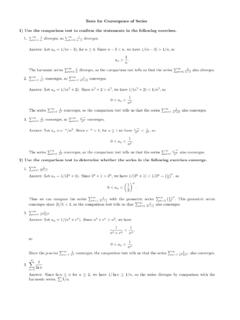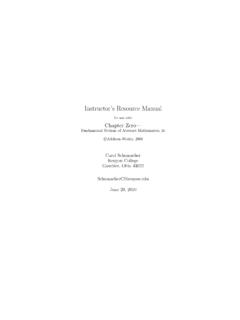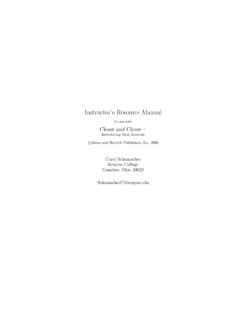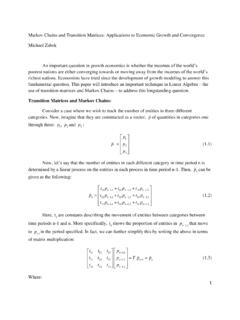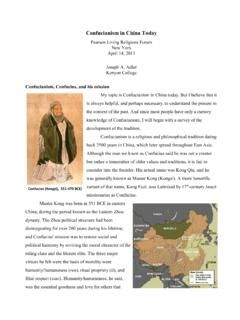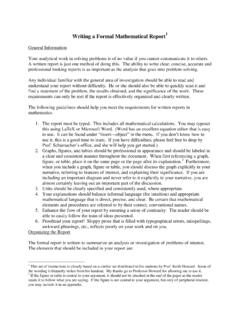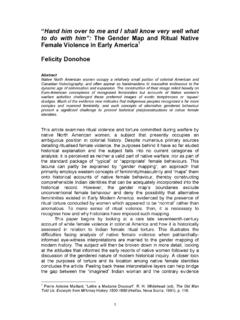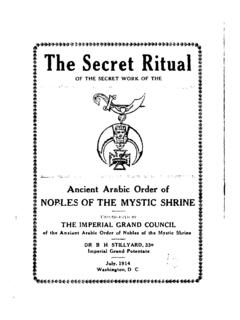Transcription of Some Definitions of Religion - Kenyon College
1 some Definitions of Religion1."[ Religion is] the belief in Spiritual Beings" (Edward B Tylor, Primitive Culture)2."By Religion , then, I understand a propitiation or conciliation of powers superior to manwhich are believed to direct and control the course of nature and of human life" (JamesGeorge Frazer, The Golden Bough).3."[ Religion is] the feelings, acts, and experiences of individual men in their solitude, so faras they apprehend themselves to stand in relation to whatever they may consider thedivine." (William James, The Varieties of Religious Experience)4."A Religion is a unified system of beliefs and practices relative to sacred things, that is tosay, things set apart and forbidden beliefs and practices which unite into one singlemoral community called a Church, all those who adhere to them.
2 " (b) [ Religion is] "theself-validation of a society by means of myth and ritual." ( mile Durkeim, TheElementary Forms of the Religious Life)5."[ Religion is] "the state of being grasped by an ultimate concern, a concern whichqualifies all other concerns as preliminary, and a concern that in itself provides theanswer to the question of the meaning of our existence." (Paul Tillich)6."[ Religion is] a system of symbols which acts to establish powerful, persuasive, and long-lasting moods and by formulating conceptions of a general order ofexistence and clothing these conceptions with such an aura of factuality that the moodsand motivations seem uniquely realistic." (Clifford Geertz, " Religion as a CulturalSystem")7.
3 " Religion , like culture, is a symbolic transformation of experience." (Thomas F. O'Dea,The Sociology of Religion )8."[ Religion is] a system of symbols (creed, code, cultus) by means of which people (acommunity) orient themselves in the world with reference to both ordinary andextraordinary powers, meanings, and values." (Catherine L. Albanese, America:Religions and Religion )9." Religion is a means to ultimate transformation." (Frederick Streng, UnderstandingReligious Life)10.[ Religion is] a means of ultimate transformation and/or orientation." (Joseph Adler,"Varieties of Spiritual Experience: Shen in Neo-Confucian Discourse") religious tradition has at least three essential elements, each handed down anddeveloped in the multitude of ways traditions transmit.
4 One element is a mythic,philosophical, or theological cosmology defining the fundamental structures and limits ofthe world and forming the basic ways in which cultures and individuals imagine howthings are and what they second essential element of Religion is ritual. rituals are a finite set ofrepeatable and symbolizable actions that epitomize things a tradition takes to becrucial to defining the normative human place in the cosmos. Early layers ofritual epitomize the hunt, nurturing of agricultural fertility, acknowledgment ofpolitical authority (worship of gods as lords), acts of commitment to otherindividuals, and so third essential element is that a tradition have some conception and practicalprocedures for fundamental transformation aimed to relate persons harmoniouslyto the normative cosmological elements, a path of spiritual perfection.
5 In theismsthis usually means salvation, a right relation to God. In Buddhism it meanstransformative enlightenment about the truth of change and (RobertCummings Neville, in Foreword to Rodney L. Taylor, The Religious Dimensionsof Confucianism)Ninian Smart's Seven Dimensions of Worldviews (secular or religious) dimensio
